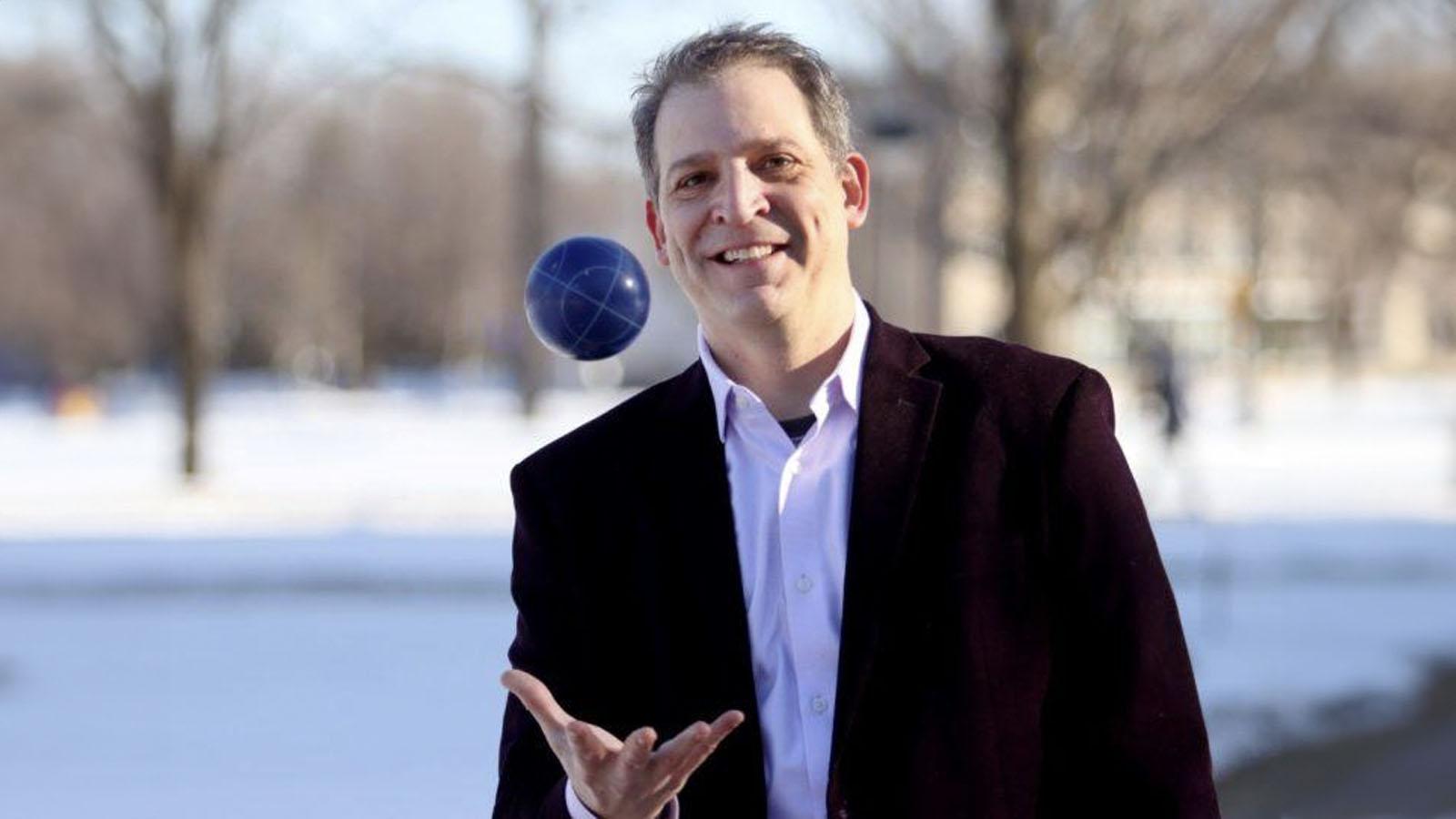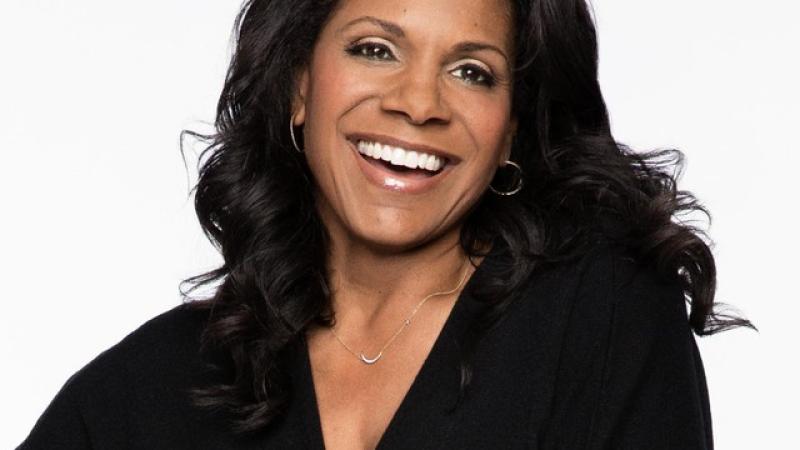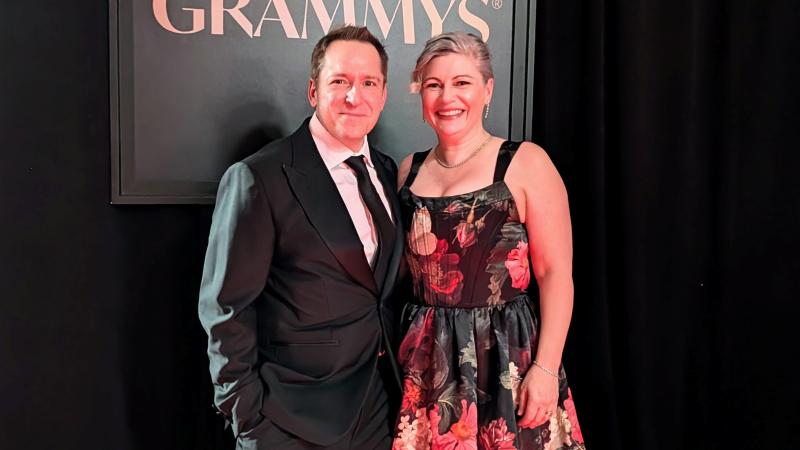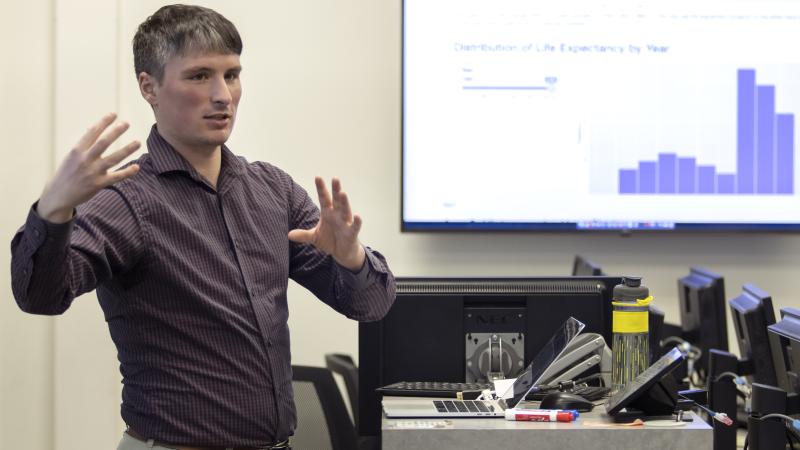About the series: On Main Hall Green With … is an opportunity to connect with faculty on things in and out of the classroom. We’re featuring a different Lawrence faculty member each time — same questions, different answers.
---
David Gerard, the John R. Kimberly Distinguished Professor of the American Economic System and associate professor of economics, has spent considerable time over the past year studying and teaching about the economics of the COVID-19 pandemic.
No surprise there. A specialist in risk regulation and public policy, particularly in areas of energy and the environment, Gerard regularly brings real-time issues into his teaching.
In 2015, his research and teaching on environmental issues earned him Lawrence’s annual Faculty Convocation Award. He then delivered a Convocation address on the growing economic and political challenges associated with climate change.
Gerard joined the Lawrence faculty in 2009 following eight years at Carnegie Mellon University, where he was executive director of the Center for the Study & Improvement of Regulation in the College of Engineering. He holds a bachelor’s degree from Grinnell College and a master’s and Ph.D. from the University of Illinois.
We caught up with Gerard to talk about his interests in and out of the classroom.
In the classroom
Inside info: What’s one thing you want every student coming into your classes to know about you?
I developed this class especially for you, the Lawrence student, and I believe in my heart that you can do well. This is especially true for the introductory economics students, who often want me to know that they have never taken an economics class. I tell them, hey, this is intro, you are in the right place.
Getting energized: What work have you done or will you be doing at Lawrence that gets you the most excited?
The pandemic has really shaken things up for me. My research and teaching focus on risk regulation and on the interface of the public and private sectors, so there is a lot going on. There is so much going on, in fact, that I pushed back my Spring 2020 sabbatical to teach a seminar on the economics of pandemics. We followed along with the economics and policy scholarship that was emerging in real time, and we also surveyed the social science and historical scholarship on how epidemics and pandemics have shaped the arc of history. There are elements of that material in just about every course I will teach going forward. It was a pretty central focus of my Public Economics course this past fall. In our Senior Experience seminar this term we are examining recent economics scholarship on topics ranging from vaccine allocation decisions to the effects on public trust in scientists to the lasting impacts on civil liberties. Professor Shober and I are hosting a reading and discussion group on the U.S. experience with infectious diseases. I’m looking forward to finding out how this one ends.
Going places: Is there an example of somewhere your career has taken you (either a physical space or something more intellectual, emotional or spiritual) that took you by surprise?
My first time teaching First-Year Studies we covered The Tempest. This was the year we had that giant class of 450 first-year students, so we moved the lecture to the Chapel. The place was packed. Professor Bond brought the house down with a lecture that featured two student actors and a big log. The Actors from the London Stage were on campus to perform the play and to conduct these hands-on acting workshops for our sections. There was this extended, exhilarating Shakespeare buzz across campus for a week or more. I wasn’t expecting the campus-wide Shakespeare buzz.
Out of the classroom
This or that: If you weren’t teaching for a living, what would you be doing?
My wife, Kirsten, tells me that I am happiest when I am teaching, so I count it as a blessing that I will never have to find out. My students will tell you it would have to be something with an “inelastic demand for my services.” The correct answer is a professional bocce player.
Right at home: Whether for work, relaxation or reflection, what’s your favorite spot on campus?
That would be the Fishbowl on Briggs 2nd. The back wall is a big window that looks into the hallway, so passersby can look right in. It is such a ridiculous room, I love teaching in there. Our tutors also hold office hours in there at night sometimes, and I like dropping in to see how that’s going and chat with the students in a more relaxed setting. My second choice would be a chair next to the window in the Nathan B. Pusey Room overlooking the Fox River. Professor Parks and I used to go drink our coffee and while away the hours there back when we were young and carefree.
One book, one recording, one film: Name one of each that speaks to your soul? Or you would recommend to a friend? Or both?
The book is Michael Chabon’s Wonderboys. It is about navigating successes and failures and coming to terms with who you are and who you might become. I have read it at different stages of my life and take different things away every time. It is one of the rare books where the book is considerably more violent than the film. And it is set in Pittsburgh!
The recording is Miles Davis’ Right Off from the Jack Johnson album. A friend gave it to me and I could not believe I had never heard it. The energy is incredible. Everything about it is incredible.
The film that speaks to me is Breaking Away. I still cry every time I see it. Well, now you know.




